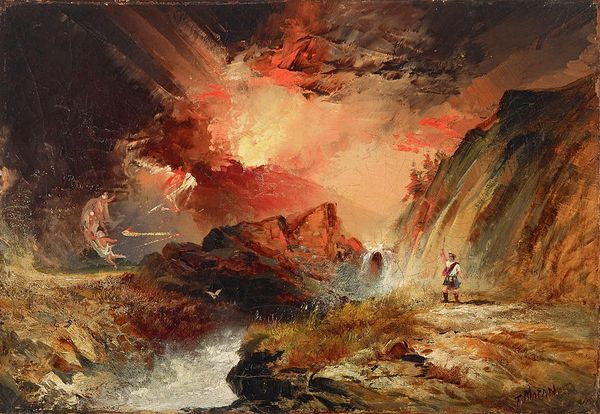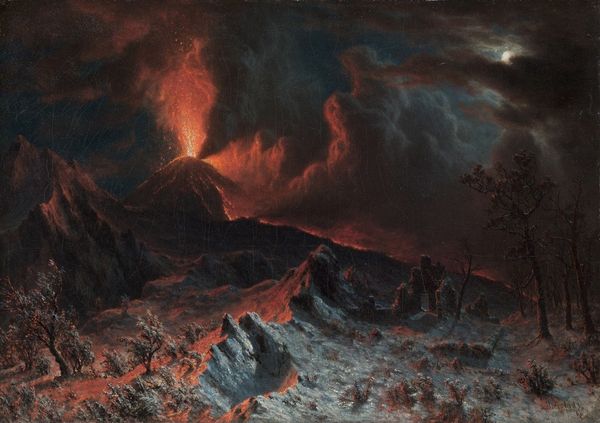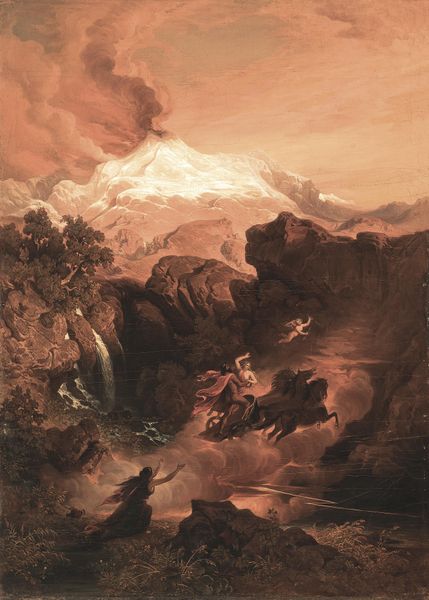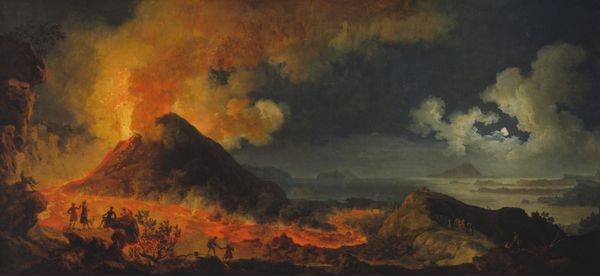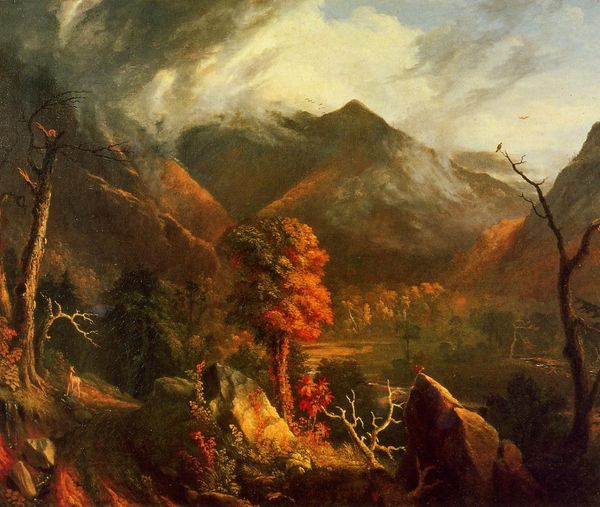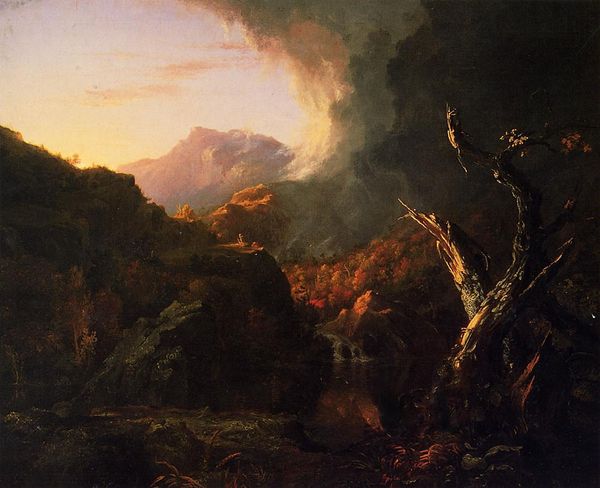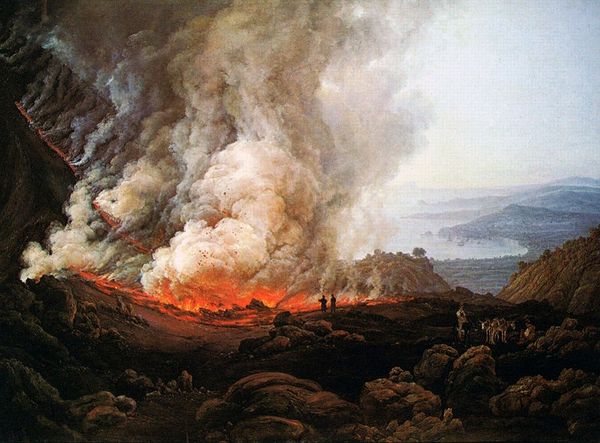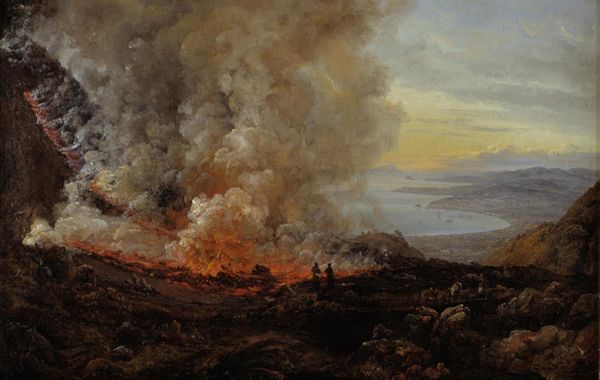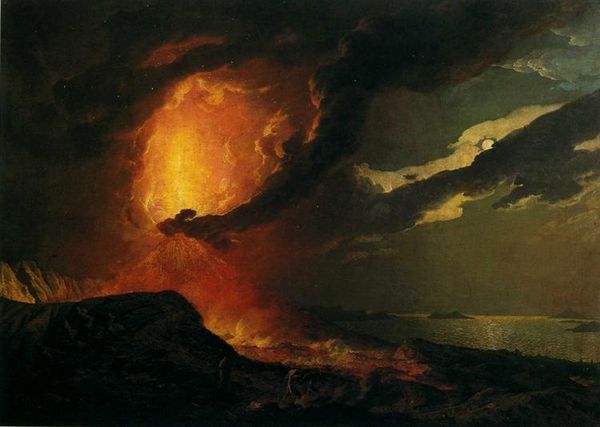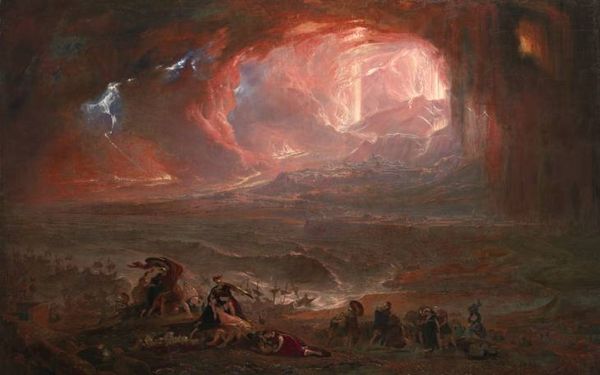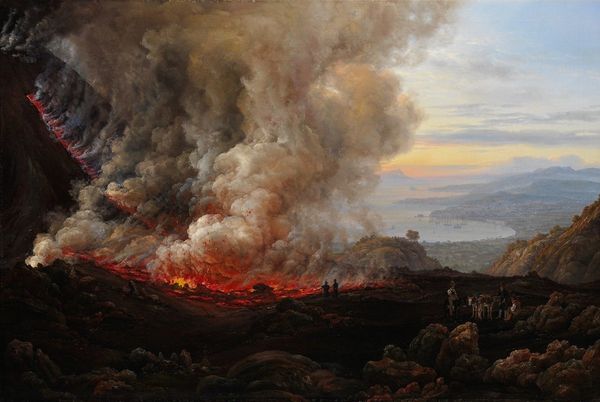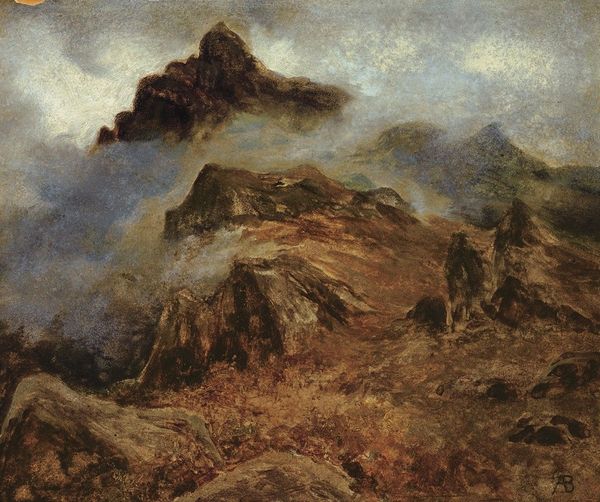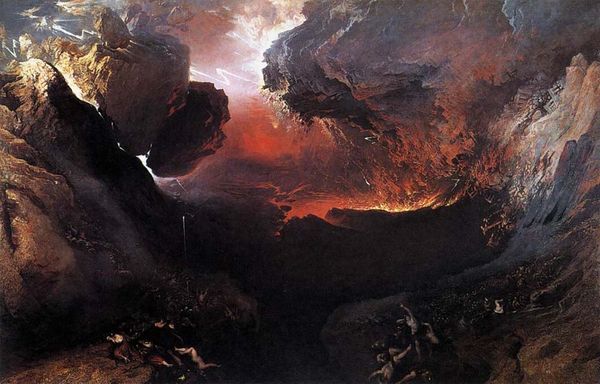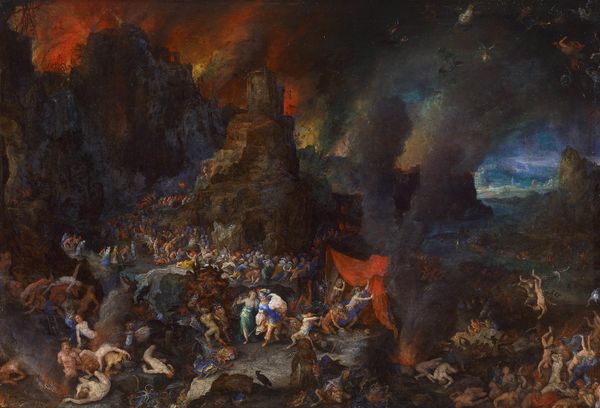
The Vesuvius Erupting, the Artist and His Father, Carle Vernet, in the Foreground 1822
0:00
0:00
painting, oil-paint
#
narrative-art
#
painting
#
oil-paint
#
landscape
#
figuration
#
romanticism
#
history-painting
Copyright: Public Domain: Artvee
Curator: Oh, this painting hits you right in the gut, doesn't it? Editor: It's intense. So dramatic and… volatile. This is Horace Vernet's “The Vesuvius Erupting, the Artist and His Father, Carle Vernet, in the Foreground," painted in 1822 using oil paint. It definitely screams Romanticism. Curator: Absolutely! You feel that raw emotion pouring off the canvas, right? Like, "Yes, nature is a powerful force, and we're just teeny humans clinging on for dear life." It's got that sublime terror thing nailed. Editor: What’s really interesting to me is how Vernet situates himself, his family, within this grand narrative. It's not just about nature’s spectacle; it’s about class and privilege watching it unfold. Who has the time and resources to be this close to a natural disaster simply to observe and paint it? Curator: Well, artistic license, right? Plus, think of it—Carle Vernet was a famous artist in his own right. Maybe it was a bit of "Look, son, let's go chase some inspiration, even if it involves potentially being engulfed in lava." Although, a part of me wonders if there's also a subtle jab at the artistic ego there? Editor: The ego, perhaps, but I think more so the performance. This idea of documenting—of claiming ownership over—something so much bigger than yourself… there’s a colonial dimension to this observation as well. Look at their outfits—positioned to control rather than connect. Curator: Okay, yeah, I can see that. And it's a historical record of sorts, but also definitely romanticized, if you look at it through that lens. I wonder if the people escaping the eruption felt the same picturesque awe. Editor: Doubtful. What this landscape captures is very much shaped by the context in which the artist exists and to whom and from what perspectives. But I suppose all art does that. Curator: Right! And you know what else strikes me? The total confidence. Not just in their bearing, but Horace Vernet's mastery with oil paint here. Those smoke clouds, the red-hot lava—it's virtuosic. Editor: And it provokes questions—uncomfortable ones at times, yes. Still, that engagement with art and history feels essential, no? Curator: Absolutely. Even if the comfortable pose might just be a pose for them!
Comments
No comments
Be the first to comment and join the conversation on the ultimate creative platform.
